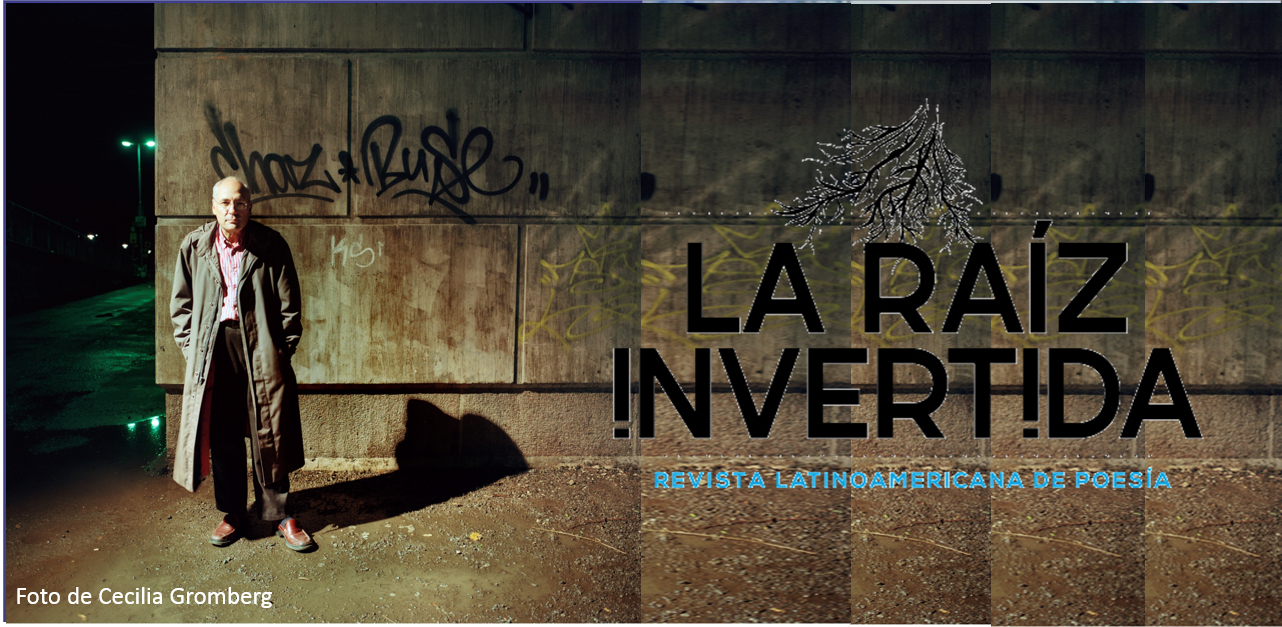
Tres poemas divertidos de Charles Bernstein
Traducción y selección de Enrique Winter
De My Way: Speeches and Poems (1999)
DEAR MR. FANELLI,
I saw your picture
in the 79th street
station. You said
you’d be interested
in any comments I
might have on the
condition of the
station Mr. Fanelli,
there is a lot of
debris in the 79th street
station that makes it
unpleasant to wait in
for more than a few
minutes. The station
could use a paint
job and maybe
new speakers so you
could understand
the delay announcements
that are always being
broadcast. Mr.
Fanelli—there are
a lot of people sleeping
in the 79th street station
& it makes me sad
to think they have no
home to go to. Mr.
Fanelli, do you think
you could find a more
comfortable place for them
to rest? It’s pretty noisy
in the subway, especially
all those express trains
hurtling through every
few minutes, anyway when the
trains are in service.
I have to admit, Mr. Fanelli, I
think the 79th street station’s
in pretty bad shape
& sometimes at night
as I toss in my bed
I think the world’s
not doing too good
either, & I
wonder what’s going
to happen, where we’re
headed, if we’re
headed anywhere, if
we even have heads. Mr.
Fanelli, do you think if
we could just start
with the 79th street
station & do what
we could with that
then maybe we could,
you know, I guess, move
on from there? Mr.
Fanelli, when I saw your
picture & the sign
asking for suggestions
I thought, if
you really wanted to
get to the bottom
of what’s wrong then
maybe it was my job
to write to you: Maybe
you’ve never been inside
the 79th street station
because you’re so busy
managing the 72nd street
& 66th street stations,
maybe you don’t know
the problems we have
at 79th—I mean the
dirt & frequent
delays & the feeling of
total misery that
pervades the place. Mr.
Fanelli, are you reading
this far in the letter
or do you get so
many letters every day
that you don’t have
time to give each
one the close attention
it desires? Or am I
the only person who’s
taken up your invitation
to get in touch &
you just don’t have enough
experience to know how to
respond? I’m sorry
I can’t get your attention
Mr. Fanelli because I really
believe if you ask
for comments then you
ought to be willing
to act on them—even
if ought is too
big a word to throw
around at this point.
Mr. Fanelli
I hope you won’t
think I’m rude
if I ask you a
personal question. Do
you get out of the
office much?
Do you go to the movies
or do you prefer
sports—or maybe
quiet evenings at a
local restaurant? Do
you read much, Mr. Fanelli?
I don’t mean just
Gibbons and like
that, but philosophy—
have you read much
Hannah Arendt or
do you prefer
a more ideological
perspective?
I think if I understood
where you are coming from,
Mr. Fanelli, I could
write to you more cogently,
more persuasively. Mr.
Fanelli, do you get out
of the city at all—I
mean like up to Bear
Mountain or out to
Montauk? I mean do you
notice how unpleasant
the air is in the 79th
street station—that we
could use some cooling
or air-filtering system
down there? Mr.
Fanelli, do you think
it’s possible we
could get together
and talk about
these things in
person? There are
a few other points
I’d like to go over
with you if I could
get the chance. Things
I’d like to talk to
you about but that
I’d be reluctant to
put down on paper.
Mr. Fanelli, I haven’t
been feeling very good
lately and I thought
meeting with you face
to face might change
my mood, might put
me into a new frame
of mind. Maybe we
could have lunch?
Or maybe after work?
Think about it, Mr.
Fanelli.
ESTIMADO SR. FANELLI:
Vi su foto
en la estación de la calle
79. Usted dice
que le interesa
cualquier comentario
que yo tenga sobre el
estado de
la estación, Sr. Fanelli,
hay un montón
de basura en la estación
de la calle 79 que hace
desagradable esperar
allí más de unos
minutos. Le podrían
echar una manito de pintura
a la estación y quizás
altoparlantes nuevos
para que se entiendan
los avisos de retrasos
que transmiten
siempre. Sr.
Fanelli —hay un montón
de gente durmiendo
en la estación de la calle 79
& me pone triste
cuando pienso que no tienen
un hogar. Sr.
Fanelli, ¿cree usted
que pueda encontrarles un
lugar más cómodo para
que descansen? Es bien ruidoso
el metro, especialmente
esos trenes expresos
que pasan como bólidos a cada
rato, claro que solo cuando
funcionan.
Debo confesarle, Sr. Fanelli, que
pienso que la estación de la calle 79
está en pésimas condiciones
& a veces de noche
cuando me doy vueltas en la cama
pienso que el mundo
tampoco va tan
bien & me
pregunto qué sucederá,
hacia dónde apuntan
nuestras cabezas, si es que
apuntan a algún lado, si
acaso tenemos cabezas. Sr.
Fanelli, ¿cree usted que
podríamos empezar
con la estación de la calle
79 & hacer lo
que podamos con eso,
entonces quizás podríamos,
usted sabe, supongo, avanzar
desde ahí? Sr.
Fanelli, cuando vi su
foto & el cartel
pidiendo recomendaciones
pensé, si
usted de verdad quería
llegar al fondo
de lo que está mal
quizás era mi obligación
escribirle: quizás
usted no ha entrado nunca
a la estación de la calle 79
porque está demasiado ocupado
en la administración de las estaciones
de la calle 72 & la 66,
quizás no conozca
los problemas que tenemos
en la 79 —me refiero
a la mugre & los usuales
retrasos & la impresión
de absoluta tristeza que
impregna el lugar. Sr.
Fanelli, ¿ha leído
hasta aquí mi carta
o recibe
tantas por día
que no tiene
tiempo para darle
a cada una la atención
que se merece? ¿O soy
acaso la única persona
que aceptó su invitación
a contactarlo &
usted no tiene experiencia
suficiente para saber qué
responder? Lamento
que no pueda obtener su atención
Sr. Fanelli porque de verdad
creo que si usted pide
comentarios entonces
debería estar dispuesto
a actuar en consecuencia —aun
si debería es una palabra
demasiado grande para tirarle
a estas alturas.
Sr. Fanelli
espero que no
piense que soy grosero
si le hago una
pregunta personal. ¿Sale
de la oficina
a veces?
¿Va al cine
o prefiere
los deportes —o quizás
las noches tranquilas en el
restorán del barrio? ¿Lee
algo, Sr. Fanelli?
No me refiero solo
a Gibbons y cosas
así, sino a la filosofía—
¿ha leído algo
de Hannah Arendt o
prefiere
una perspectiva
más ideológica?
Creo que si yo supiera
de dónde viene usted,
Sr. Fanelli, podría escribirle
de un modo más convincente,
más persuasivo. Sr.
Fanelli, ¿sale
alguna vez de la ciudad —digo
hasta Bear
Mountain o a
Montauk? Digo, ¿nota
usted lo desagradable
que es el aire en la estación
de la calle 79 —que
no vendría mal un poco de aire
acondicionado o un sistema
de filtrado allá abajo? Sr.
Fanelli, ¿cree
que sería posible
juntarnos
y que conversemos en
persona de estas
cosas? Me quedan
un par de puntos
que quisiera repasar
con usted si tuviera
la oportunidad. Cosas
que quisiera contarle
pero que soy
reacio a
poner por escrito.
Sr. Fanelli, no me
he sentido bien
últimamente y pensé
que conocernos en persona
podría mejorar
mi humor, podría ponerme
en un nuevo estado
de ánimo. ¿Y si
almorzamos juntos?
¿O quizás después del trabajo?
Piénselo, Sr.
Fanelli.
De Let’s Just Say (2003)
THANK YOU FOR SAYING THANK YOU
This is a totally
accessible poem.
There is nothing
in this poem
that is in any
way difficult
to understand.
All the words
are simple &
to the point.
There are no new
concepts, no
theories, no
ideas to confuse
you. This poem
has no intellectual
pretensions. It is
purely emotional.
It fully expresses
the feelings of the
author: my feelings,
the person speaking
to you now.
It is all about
communication.
Heart to heart.
This poem appreciates
& values you as
a reader. It
celebrates the
triumph of the
human imagination
amidst pitfalls &
calamities. This poem
has 90 lines,
269 words, and
more syllables than
I have time to
count. Each line,
word, & syllable
has been chosen
to convey only the
intended meaning
& nothing more.
This poem abjures
obscurity & enigma.
There is nothing
hidden. A hundred
readers would each
read the poem
in an identical
manner & derive
the same message
from it. This
poem, like all
good poems, tells
a story in a direct
style that never
leaves the reader
guessing. While
at times expressing
bitterness, anger,
resentment, xenophobia,
& hints of racism, its
ultimate mood is
affirmative. It finds
joy even in
those spiteful moments
of life that
it shares with
you. This poem
represents the hope
for a poetry
that doesn’t turn
its back on
the audience, that
doesn’t think it’s
better than the reader,
that is committed
to poetry as a
popular form, like kite
flying and fly
fishing. This poem
belongs to no
school, has no
dogma. It follows
no fashion. It
says just what
it says. It’s
real.
GRACIAS POR DAR LAS GRACIAS
Este es un poema
totalmente accesible.
No hay nada
en este poema
que sea en modo
alguno difícil
de entender.
Todas las palabras
son simples &
van al grano.
No hay conceptos
nuevos, ni
teorías, ni
ideas confusas.
Este poema
no tiene pretensiones
intelectuales. Es
pura emoción.
Expresa por completo
los sentimientos del
autor: mis sentimientos,
la persona que ahora
te habla.
Solo le importa
comunicarse.
De corazón a corazón.
Este poema te aprecia
& valora como
lector. Celebra
el triunfo
de la imaginación
humana sobre
los obstáculos &
las desgracias. Este poema
tiene 90 líneas,
269 palabras y
más sílabas de
las que tengo tiempo
de contar. Cada línea,
palabra & sílaba
ha sido elegida
para transmitir solo el
sentido deseado
& nada más.
Este poema renuncia
a la opacidad & al enigma.
No esconde
nada. Cien
lectores podrían
leer el poema
de manera
idéntica & entender
el mismo
mensaje. Este
poema, como todos
los buenos poemas, cuenta
una historia con un estilo
directo que jamás
deja dudas
al lector. Aunque
a ratos expresa
amargura, rabia,
resentimiento, xenofobia
& un dejo de racismo, en
el fondo su ánimo es
positivo. Encuentra
alegría incluso en
esos momentos maliciosos
de la vida que
comparte contigo.
Este poema
representa la esperanza
en una poesía
que no le dé
la espalda al
público, que
no se piense
mejor que su lector,
que se comprometa
con la poesía como una
forma popular, como encumbrar
volantines o pescar con
mosca. Este poema
no pertenece a ninguna
escuela ni obedece
a un dogma. No sigue
la moda. Dice
solo lo que
dice. Es
real.
De World on Fire (2004)
IN A RESTLESS WORLD LIKE THIS IS
Not long ago, or maybe I dreamt it
Or made it up, or have suddenly lost
Track of its train in the hocus pocus
Of the dissolving days; no, if I bend
The turn around the corner, come at it
From all three sides at once, or bounce the ball
Against all manner of bleary-eyed fortune
Tellers—well, you can see for yourselves there’s
Nothing up my sleeves, or notice even
Rocks occasionally break if enough
Pressure is applied. As far as you go
In one direction, all the further you’ll
Have to go on before the way back has
Become totally indivisible.
EN UN MUNDO AGITADO COMO ESTE
No hace mucho, o acaso lo soñé
o lo inventé, o de pronto le perdí
la pista al tren en el abracadabra
de días que se esfuman; no, si doblo
esta vuelta a la esquina, llego a ella
desde tres lados a la vez, o boto
el balón contra todos los videntes
adormilados —bueno, pueden verlo
sus propios ojos, que no hay nada bajo
mi manga, o noten cómo hasta las rocas
se quiebran a presión. Cuanto más andes
en una dirección, tanto más lejos
tendrás que seguir antes que el retorno
se vuelva enteramente indivisible.
***
También le puede interesar: "un poema perdido" de Carolyn Forché
Enrique Winter, selección de poemas




